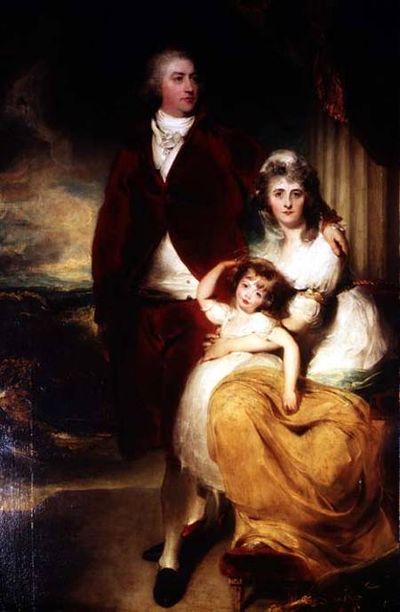
Death of a Peasant Countess
On January 18, 1797, Sarah Countess of Exeter passed away at the age of 23.
Mr. Henry Cecil, while his uncle held the family title of Earl of Exeter, married a lady of respectable birth, from whom, after fifteen years of wedded life, he sought a divorce — the woman had fallen in love with the vicar and eloped with him. Deeply in debt, he put on a disguise, and came to live as a poor and humble man, at Bolas Common, an obscure village in Shropshire. No one came to inquire after him; be had vanished from the gaze and the knowledge of all his relatives.
He was known to none, and having no ostensible means of living, there were many surmises as to who and what he was. The general belief at one moment was, that he gained his bread as a highwayman. He lodged with a cottage labourer named Hoggins, whose daughter Sarah, a plain but honest girl, next drew the attention of the noble refugee. He succeeded, notwithstanding the equivocal nature of his circumstances, in gaining her heart and hand. It has been set forth that Mr. Cecil, disgusted with the character of his fashionable wife, resolved to seek some peasant mistress who should love him for his own sake alone; but the probability is that the young noble was simply eccentric, or that a craving for sympathy in his solitary life had disposed him to take up with the first respectable woman who should come in his way. Under the name of Mr. John Jones, he purchased a piece of land near Hodnet, and built a house upon it, in which he lived for some years with his peasant bride, who never all that time knew who he really was. His marriage was bigamous but after his divorce they renewed their vows.
Two years after the marriage (December 27th, 1793), Mr. Cecil succeeded to the peerage and estates on death of his uncle; and it became necessary that he should quit his obscurity at Hodnet and move to lavish Burleigh House, near Stamford. The “Cottage Countess” as she was called, did not prove quite up to the part she had been unwittingly drawn into. After having borne her husband three children (amongst whom was the peer who succeeded), she sickened and died, near having quite accustomed herself to the life of an aristocrat.
Tennyson’s poem “The Lord of Burleigh” tells the tale rather more romantically.